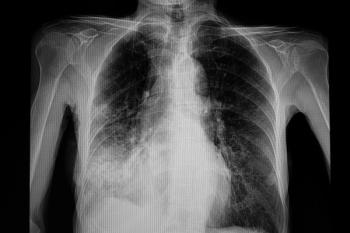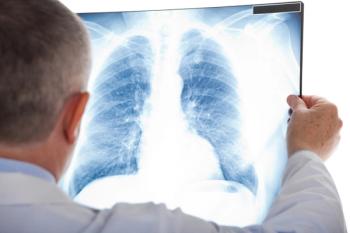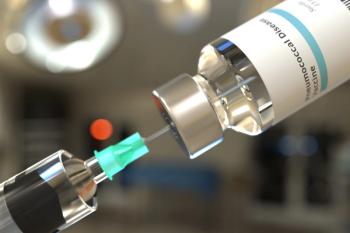
Pneumococcal
Latest News
Latest Videos

CME Content
More News

In a survey among community pharmacists in South Carolina, many pharmacists were unable to correctly identify proper pneumococcal vaccination guideline, raising concerns.

These new phase 3 results indicate the effectiveness of the 2-dose 13-valent pneumococcal conjugate vaccine (PCV13) and 1-dose PCV20 regimens.

Pharmacist-led interventions significantly improve antibiotic prescribing practices, optimize therapy, and improve patient outcomes.

Individuals who refused a pneumococcal vaccine were associated with low collective responsibility and confidence in vaccine efficacy and safety.

A collaborative health care approach enhances patient outcomes and supports informed decision-making in antibiotic management.

The study authors add that the validation improved the risk score in additional community-acquired pneumonia cohorts, and clinical studies would assess the broad clinical applicability.

Results suggest that patients commonly receive more than 5 days of treatment, which could be an opportunity for an antimicrobial stewardship initiative.

The 23-valent pneumococcal polysaccharide vaccine (PPSV23, Pneumovax 23; Merck Sharp & Dohme Corp) demonstrates effective reductions in the risk of hospitalizations.

Investigators say basic immunodeficiency screening should be completed in full for this patient population.

Pneumococcal disease incidence decreased in adults after pneumococcal vaccines began to be used in children due to indirect protection, with fewer adults found to carry the bacterium that causes disease.

Commonly cited factors influencing uptake of pneumococcal vaccination included knowledge of pneumococcal disease and vaccine benefits, recommendations from health authorities, and perceived risk of infection.

Karyne Jones highlights the importance of pneumococcal vaccination for those 50 years and older, especially in communities of color.

Reasons for supporting the lowering of the age-based pneumococcal vaccine recommendation included the likelihood it would increase vaccination rates in multiple age groups and demographics.

Known to be a leading cause of mortality worldwide, cigarette smoke exposure can make the respiratory tract more susceptible to pneumococcal infection.

The CDC Advisory Committee on Immunization Practice voted to expand the recommendation, which includes Prevnar 20 and Capvaxive.

Data presented at IDWeek also showed greater disease-prevention effects in the community with PCV21 compared with prior pneumococcal vaccines.

The panel of pneumococcal vaccination experts offer their concluding insights and perspectives on the current landscape of pneumococcal vaccines.

The key opinion leaders explore effective methods for educating patients about pneumococcal vaccination, highlighting its importance and benefits, while also addressing the impact of COVID-19 on vaccine hesitancy and potential fatigue in the general population.

The panel explores potential barriers to administering newer pneumococcal vaccines, such as payer coverage and patient concerns, while also discussing effective strategies for patient education and emphasizing the necessity and benefits of pneumococcal immunization.

The key opinion leaders examine the recent approval of PCV21, assessing its potential influence on pneumococcal vaccination strategies, while also identifying and discussing current unmet needs in the field of pneumococcal vaccination.

The vaccination experts analyze the impact of currently approved pneumococcal vaccines on otitis media prevention and compare the newer conjugate vaccines (PCV15 and PCV20) to their predecessors in terms of strain coverage and clinical efficacy.

Key opinion leaders examine the pivotal clinical data that supported the FDA approvals of PCV15, PCV20, and PCV21, while also explaining the differences between polysaccharide and conjugate pneumococcal vaccines in terms of their induced immune responses and the durability of protection they offer.

The medical experts explore the importance of receiving PCV20 following PCV13 and PPSV23 vaccinations, while also delving into the broader discussion of how sequential administration of these pneumococcal vaccines may potentially enhance protection against targeted strains.

The panel of experts examines the most recent ACIP recommendations for pneumococcal vaccination in adults aged 65 and older, highlighting key updates and changes to the guidelines.

Krista D. Capehart, PharmD, BCACP, FAPhA, Dr. Capeheart outlines the patient populations for whom pneumococcal vaccines are indicated and provides a detailed explanation of the ACIP-recommended immunization schedules for these vaccines.




























